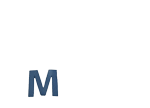
 Tufts University STEM
Education Student Symposium and Reception
Tufts University STEM
Education Student Symposium and ReceptionFriday September 15, 2017, Austin Room, Tisch Library
Symposium 1:00-3:30; Reception 3:30-4:30
Program
| 1:00-1:05 |
Welcome |
| 1:05-1:25 | Yara Shaban, Department of
Education Building consensus through modeling: A framework for the fitness of ideas in classroom science discourse Scientists use argumentation, critique, and modeling to generate consensus around particular ideas. Students in science classrooms can be supported to engage in similar knowledge-building discourses, but how they reach consensus remains underexplored. Drawing from memetics, I take a genetic perspective to present the Idea Fitness Framework (IFF), which identifies four selection forces: Relatedness, Disciplinary Utility, Authority, and Generative Ambiguity, that contribute to an idea’s fitness in student modeling discourses. Using micro genetic and sociogenetic examples of how the forces operate in the classroom, this presentation shows how IFF operates as a dynamic system that helps to explain how consensus is reached in knowledge building discourses. |
| 1:25-1:45 | Matt Simon, Department of
Education Responsive Teaching Professional Development for Biology Graduate Student Teaching Assistants Responsive teaching utilizes any from a variety of approaches that emphasize teachers eliciting, noticing, attending and responding to student thinking and ideas. Teaching responsively can push students to engage more deeply with content and to develop disciplinary practices in an authentic setting of ‘doing science.’My ultimate goal is to design professional development in responsive teaching for graduate student teaching assistants (GTAs) in biological science, and to study their learning. In this talk, I will show data from an introductory biology laboratory that highlights the benefits and challenges of responsive teaching. Drawing from this clip, I will lay out a draft design of the professional development and study, and I will ask for feedback, particularly with respect to data collection. |
| 1:45-2:05 | Anna McLean Phillips,
Department of Physics & Astronomy Beyond “asking questions”: problematizing as a disciplinary activity” While problem solving and constructing explanations are widely recognized as important activities within science classrooms, much less attention has been given to the importance of students’ articulating precise problems and constructing clear questions. I argue that well-defined problems are a form of knowledge in science. Therefore, the work of creating and refining these problems--an activity I refer to as problematizing--is an important scientific activity that students should engage in. I address how questions are currently portrayed within the Next Generation Science Standards and conclude with suggestions for how future standards could more accurately reflect the nature of questions and problems in science and better support students’ problematizing in classrooms. |
| 2:05-2:15 |
Break |
| 2:15-2:35 | Matt Mueller, Department of
Mechanical Engineering Learning About Engineering Design and Physics by Building Musical Instruments Music provides a unique topic for researching maker education because it allows for engagement at varying levels of complexity and different fields of study. The concept that students can learn effectively by creating a physical or digital artifact to try and solve an open ended problem has grown in popularity in the academic community and schools, especially as digital and rapid prototyping tools become more accessible, both in price and user interfaces. The provocation "design and build a musical instrument" can be approached using cardboard and rubber bands or electronics and computer coding, and lends itself to learning about engineering design (the instrument's structurally stability and human factors) as well as about the physics of vibrations (the quality of the sound being produced). I will present past research done during Billund Builds Music, a week long intervention involving 4,000 students in 10 schools in Denmark, then share new ideas for students' instrument making and researchers' methodologies as I begin a study on this topic. |
| 2:35-2:55 | Elise Deitrick Harrison,
Department of Education 'Secondary Listening': Students Listening for Their Group Mates' Framing Previous research has indicated the large effect student discourse plays in affecting the success of student groups. We build on this literature by presenting a different focus: While many studies have made progress looking at the content of the speaker’s words to another student (e.g. level of elaboration in an explanation), we study the speaker’s words and behavior for evidence of attention to the audience. We propose that this listening by a speaker happens along multiple dimensions, including what we call ‘secondary listening’ to the implicit messages by their peers about how they are framing the interaction. In this talk, I draw on data from CodeR4Stats, a project to infuse computing into high school statistics using the R programming language. I show evidence of a speaker’s secondary listening as contributing to the one pair’s successful collaboration. |
| 2:55-3:30 |
Discussant remarks and small
group discussions with authors |
| 3:30-4:30 | Reception |